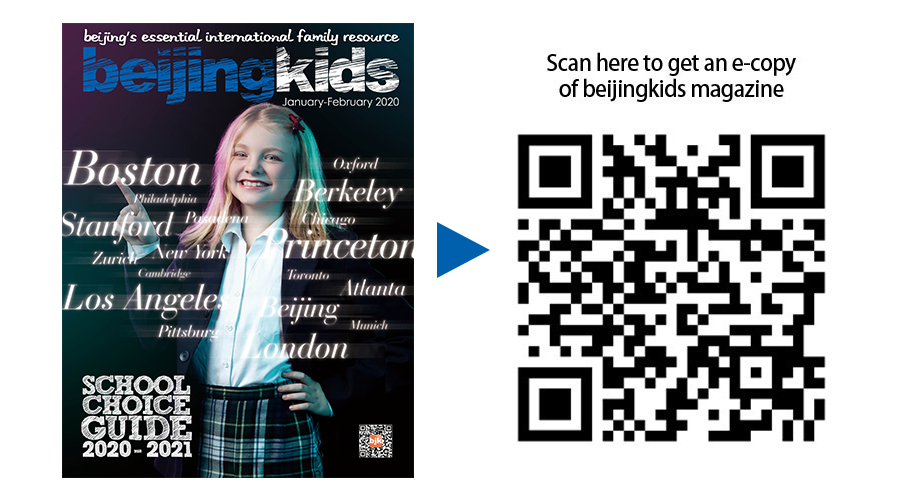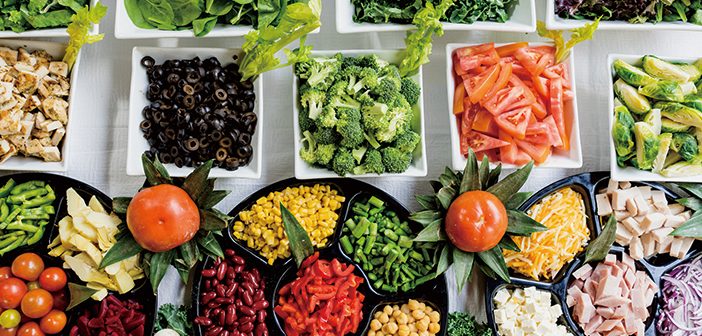Every year we have the distinct privilege of compiling a School Choice Guide (SCG) for our readers. This special issue of our magazine is not only a comprehensive look at the state of international education in Beijing, it also acts as a compendium to our annual Jing International School Expo (JISE), so that parents and students are equipped to make the most out of their visits with principals and staff at the event, and ultimately find the best school for their family.
Due to COVID-19, we were unfortunately forced to delay JISE, however, our 2020-2021 School Choice Guide is available and jam-packed with information! Now is the perfect time to familiarize yourself with everything from the various curricula followed at different institutions, to which schools offer scholarships and how your kid could land one.
For now, you can read our article about school lunches, and find out how companies like Compass Group ensure that your child will get a healthy, balanced diet.
And to learn more about what catering companies have been doing during COVID-19 amidst school closures and health concerns, check out our interview with Doko, another local school food-service provider.
There are many criteria that parents look at when deciding which school to enroll their children into. While teachers, curriculum, location, and safety are all aspects that parents readily review, food quality is a feature that is gaining evermore attention. As the meals served in schools are increasingly scrutinized, schools are taking notice and are paying special attention to make sure their students are eating nutritious, unique, and delicious cuisine on a daily basis.
One catering management company called Compass Group is an example of a global business that focuses on serving quality food to its clients. Compass Group has already built a reputation in the food catering management world serving more than 5 billion meals a year and operating in over 50 countries. Chartwells is their divisions specializing in catering management for schools.
Chartwells is currently working with more than 18 education locations in Beijing. Some familiar schools they work with include Keystone Academy, Beanstalk International Bilingual School (BIBS), Western Academy of Beijing (WAB), The British School of Beijing, Shunyi (BSB Shunyi), the British School of Beijing, Sanlitun (BSB Sanlitun), and the French International School of Beijing (LFIP) just to name a few. It has a wealth of knowledge in how to properly cater a balanced diet to students across the country. We had an opportunity to speak with Tony Xue, Regional Director of Compass Group, about how Chartwells operates and prepares their school meals to make sure students get the right kind of food to keep them healthy, focused, and full of energy.
 Chartwells prides itself on its recognition as a global brand. Based on its experience from serving food to clients all around the world, it has a keen understanding of who exactly their customers are and how important it is to cater to their needs. Given that “Students and teachers are from different countries,” they meet the needs of both by serving food from the West, Asia, Middle East, and other cuisines, along with using their global position to “invite guest chefs from all over the world…to optimize [their]menus and recipes.” Although Chartwells focuses on serving students global cuisine, it also serves local Chinese food for international schools in China. Its menus may include items such as cottage pie or falafel, but it also makes sure items like Shanghai braised pork is present as well.
Chartwells prides itself on its recognition as a global brand. Based on its experience from serving food to clients all around the world, it has a keen understanding of who exactly their customers are and how important it is to cater to their needs. Given that “Students and teachers are from different countries,” they meet the needs of both by serving food from the West, Asia, Middle East, and other cuisines, along with using their global position to “invite guest chefs from all over the world…to optimize [their]menus and recipes.” Although Chartwells focuses on serving students global cuisine, it also serves local Chinese food for international schools in China. Its menus may include items such as cottage pie or falafel, but it also makes sure items like Shanghai braised pork is present as well.
Xue said that to understand the needs of its customers, Chartwells regularly consults with them. It has been working with School Food Committees that are composed of students, teachers, and parents, and holds regular meetings with them to get feedback about the quality of their food and service, and to provide a place to give solutions accordingly. Chartwells also makes an effort to collaborate with parents by cooperating with the PTA to organize food events. As for its communication with students, its unit managers and head chefs talk with them during dining periods to get direct feedback about the food quality, and make observations about how the students are eating to gain a better understanding of food preferences.
Olivier Mallard, General Manager at LFIP and also one of the chefs from Chartwells, told us that he always makes the effort to talk to students. One of his findings was that most students love chicken nuggets. Instead of telling them to stop eating this junk food, he decided to show a documentary explaining how nuggets are made. His approach of “showing, not telling”, has actually gotten students to pay more attention to the nutritional value of the food they eat. He even offers classes to educate students about the importance of healthy eating.

Olivier Mallard
By working directly with those it is serving, Chartwells makes an effort to ensure that its food is not only safe for consumption but nutritious as well. Its method of making sure their food is safe for students is through the creation of the HSE (Health, Safety and Environment) Department that inspects the ingredients from the suppliers it uses, and also monitors the meals itself once served in the canteens. Chartwells’ chefs also use the System Analysis and Program system (SAP) to order ingredients for their menu. The SAP is used to decide which supplier is available for the schools and whether they deliver safe items after already being evaluated by the company.
Along with food safety, Chartwells’ other main focus is the nutritional value of its meals. It has strict requirements on which ingredients are allowed to be present in their meals: items such as MSG, peanut oil, and horse beans are forbidden. Healthy cooking procedures also take place as meals are cooked with less oil and contain low salt and sugar content, and Chartwells nutritionists’ advice would normally be taken into consideration for their meal offers so students are receiving a balanced diet. Allergy control procedures are followed in the schools that Chartwells works with as the schools collect a list of known allergies from their student body and provide it to the catering management company so meals that can cause allergic reactions are not served.
As important as nutritional food can be for students, it won’t mean much if they aren’t tasty enough for students to even try them. In order to break the monotony of canteen food that some students may expect to eat, Chartwells tries to make the student’s dining experience exciting by holding theme-day events such as Chinese Festival Day, Korean Food Day, or Mexican Food Day. Apart from these themed food events, it also holds an event known as Beyond Food, in which its own chefs or guest chefs teach consumers how to make food such as pizza, cakes, or dumplings. Along with learning how to make food with the chefs, Chartwells’ nutritionists also teach classes for students to be better educated about the food they eat.
Chartwells of Compass Group is just one example of a school food catering company serving meals to the thousands of students enrolled in international schools around Beijing and elsewhere in the world. Just like Chartwells, many schools, parents, and catering companies are recognizing how important a safe, healthy, and delicious meal could be for students. As studies show how nutritious school meals are linked to higher performing academic results, the food students eat in schools will only continue to grow in importance as part of a child’s school experience.
 This article appeared in the beijingkids 2020 School Choice Guide
This article appeared in the beijingkids 2020 School Choice Guide
Photos: Unsplash, Courtesy of Compass Group




